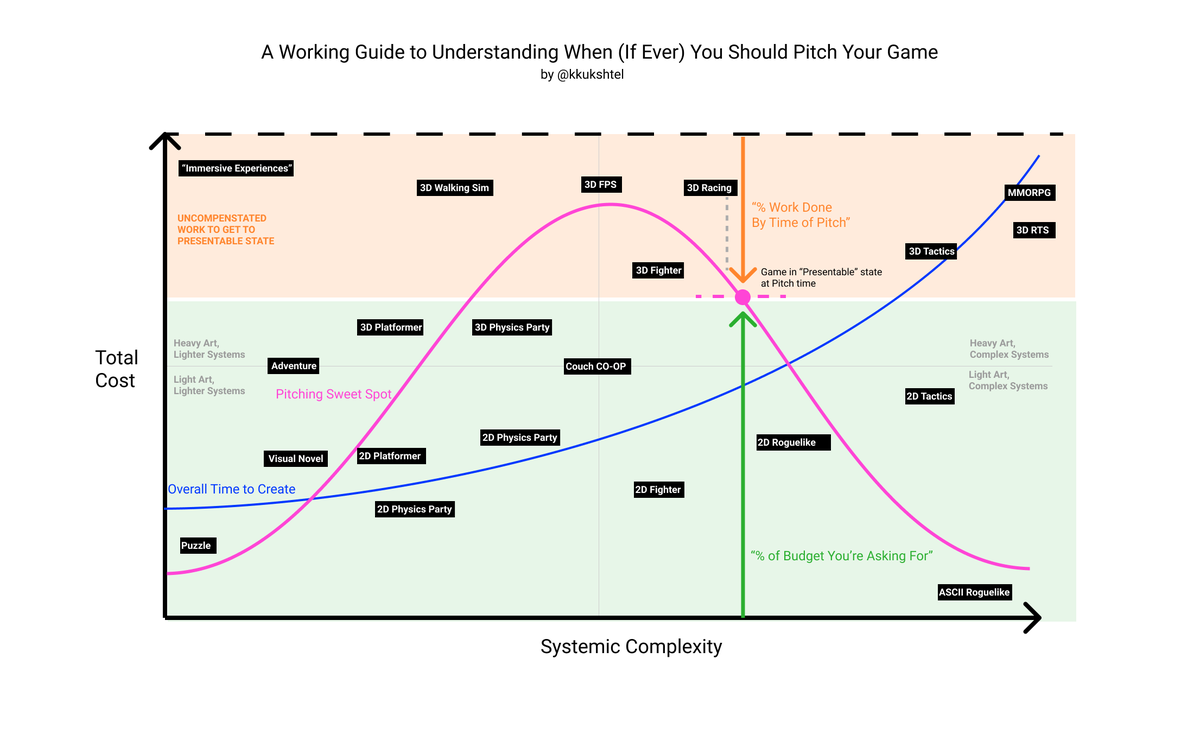
CRUNCH MATH/STORY TIME: One person stays late at work 1-2 hours a week. It’s never enough to alert anyone, and the person genuinely enjoys their work so nobody cares. HOWEVER...
1-2 hours a week over the course of 1-2 years of dev adds up to 1-2 extra weeks of work, now fully unaccounted for in a development schedule. The company delivers the game “in time” but they are secretly over schedule! But it gets worse...
This is just one person. A small team of 5-10 people means that you’re looking at MONTHS of unaccounted work, even if people are staying late “because they like working” and each instance of it seem innocuous enough. But now...
A team is delivering a game that takes 1.2x longer to make than it thinks it does. So for the next game the studio pitches something of similar scale with the same time frame, but now their delivery relies on that unaccounted-for work!!!
Those extra days, months, years (multiply even one extra hour a week at AAA scale of hundreds of ppl) don’t magically go away, and now the studio is relying on that extra time, not even realizing that they had a dependency on it!
So imagine that they reigned everyone in to a stricter schedule, but after their pitched dev time the game still has months of work left - now we’re crunching baby!!! All because people stayed late only a little bit every week!! This stuff adds up!
I think here is the murkiness of the both sides-isms of crunch. People working late on stuff they like seems like a win win - the employee likes working on something and the company likes the employee working.
Especially when there’s no overtime pay, this is a virus that can rot a team. A few hours of passion-led overtime can quickly morph into crunch when the employee no longer wants to stay late (reasonable!) but the scoped work was (implicitly) counting on that extra time.
If you’re an employee - don’t do this unless you’re getting paid. Just because you’re passionate doesn’t mean you shouldn’t be getting paid in equal measure. But also be aware of burning yourself out! Burn out is real, and no amount of money is worth you going through that.
If you run a company, be aware of any “secret” work that you are implicitly relying on (or doing) for the delivery of something! IMO block it all together if possible, or find ways to incorporate it into the main stream of work in productive ways.
I also say all this as someone who’s been on both sides of this in different permutations. 80 hour weeks with no overtime. 60 hour weeks with overtime. Both suck, and neither was worth it for what was produced in the end when I consider what else that did to my mental state.
Worth noting too: the “passion to keep working after work” will ALWAYS go away. People have kids, burn out, family stuff, health issues, new hobbies, whatever. Relying on someone’s (or your own) “passion” is a recipe for burn out and mismanagement.
• • •
Missing some Tweet in this thread? You can try to
force a refresh




